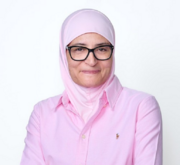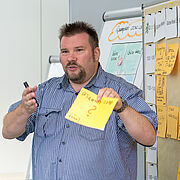
by Lilia Gargouri
Digital accessibility affects more people than many assume: it not only supports individuals with disabilities but also enhances the usability of digital services for everyone.
This talk is aimed at developers, UX designers, QA professionals, and project managers who want to build a solid understanding of accessibility — from technical, legal, and conceptual perspectives.
The goal of the session is to provide hands-on foundational knowledge, highlight common barriers, and establish a clear understanding of legal requirements and technical standards — as a basis for creating high-quality, inclusive digital products.
Die CI ist schnell? Dann laufen da bestimmt nur die Unit-Tests... oder? (The CI is fast? Then it's probably only running unit tests... right?)


by Elmar Juergens & Fabian Streitel
Running automated tests is a vital part of effective continuous integration (CI).
However, test suites on the higher levels of the testing pyramid are often too slow to be fully integrated into the CI pipeline.
One approach to still include these tests is to run a small, fast subset — which is worthwhile if that subset can catch a large portion of potential defects.
We evaluated a wide range of test selection methods from research, based on code coverage, machine learning, historical results, and more. In this talk, we’ll present the most effective techniques and share which ones have proven successful in real-world practice.
Guardians of Quality: Eine Reise durch die Schulen der Test-Galaxien (Guardians of Quality: A Journey Through the Schools of the Test Galaxies)

by Georg Haupt
In this adventure, we journey through the universe of software testing, where each “planet” represents a different school of thought.
We visit the structured “Standard School” such as ISTQB or BBST, dive into the data-driven “Analytic School,” and explore the flexible world of the “Agile School.”
Next, we uncover the stellar “Quality School,” the mysterious realm of the “Context-Driven School,” and the futuristic domain of “Modern Testing.”
In this epic voyage through the software testing galaxy, we examine and compare each domain, reveal their unique debates, and come to understand that every planet — or in this case, testing school — contributes its own essential philosophy and role to the wider universe.
Join me in discovering new horizons in quality assurance.